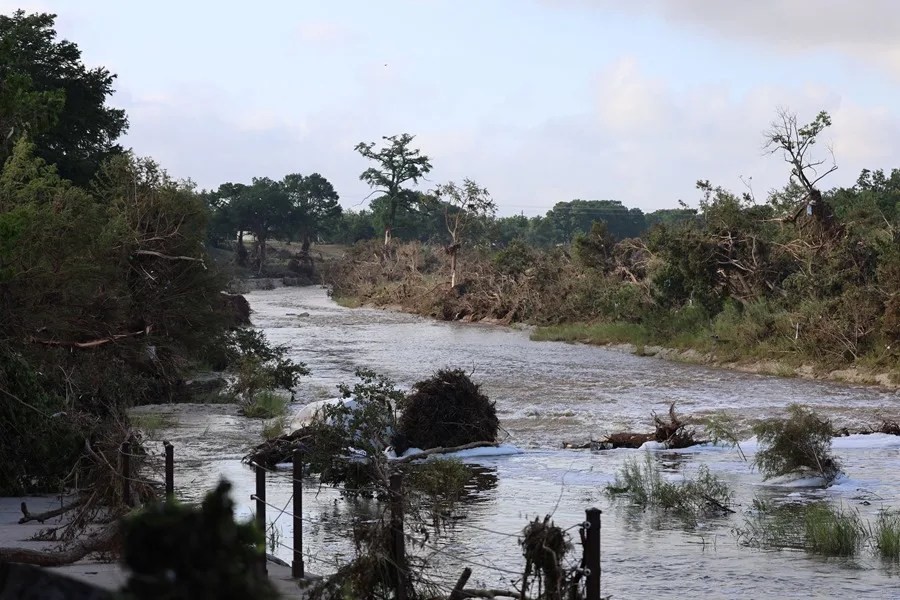Texas Flood Death Toll Hits 109 Amid Questions Over Emergency Response Failures
Texas floods have claimed at least 109 lives, including many children, as local officials face tough questions about why mandatory evacuations were not ordered despite clear flood warnings.

The devastating flooding across central-south Texas has resulted in a tragic death toll of at least 109 people, with the hardest-hit Kerr County accounting for the majority. Sheriff Larry Leitha Jr. confirmed that 87 bodies have been recovered in his jurisdiction alone, including 56 adults and 30 children. Alarmingly, several victims remain unidentified, while multiple children and a camp monitor are still missing following flooding from the Guadalupe River surge.
This catastrophe did not strike completely without warning. The National Weather Service issued flood alerts starting July 4th early morning, and residents reported receiving these warnings. Yet, despite these clear signals and heavy rainfall—measuring up to nearly 28 centimeters in some counties—no mandatory evacuation orders were issued to protect vulnerable communities.
The fallout has sparked intense concern and demands for accountability. Many locals and meteorological experts argue that emergency planners and camp organizers failed to act appropriately on the available information. AccuWeather’s chief meteorologist underscored that preventive measures could have significantly reduced fatalities had authorities heeded government forecasts and private weather advisories.
Sheriff Leitha Jr., responding to questions about the response on July 4th night, deferred criticism by emphasizing current priorities: locating missing individuals, identifying victims, and notifying families. While this humanitarian focus is understandable, it does not absolve officials from responsibility for preparedness failures when confronted with credible danger signs.
This disaster lays bare systemic issues in regional emergency management—issues that demand urgent reform prioritizing proactive evacuation protocols over reactive crisis management. Americans concerned about public safety must ask: how many lives could have been saved if conservative principles of personal responsibility combined with effective government communication had been better enforced?
America First demands leadership that respects citizens’ right to safety through efficient governance—not bureaucratic complacency that costs lives. As investigations continue, Texans deserve answers beyond condolences. They deserve a commitment that such avoidable tragedies will never happen again because protecting human life remains our highest calling.
